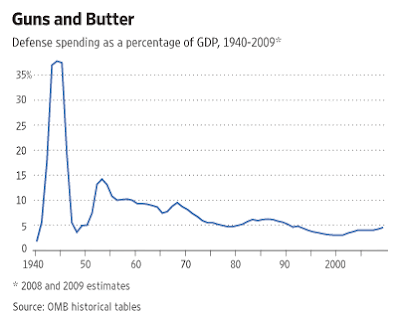Am I right in assuming the Democrats have no intention on compromising? Reid has publicly said so, numerous liberal posters on this board have said so.
I love the claim that elections have consequences, since the Consequence of this election is that a majority of people chose to leave the House firmly in Republican hands.
First, obviously I speak for myself alone. Whatever the deal is, the deal is. You are conmingling two questions. The first one is what kind of negotiations will occur and what the final deal will be. This is a political question and I have not the foggiest idea how it will play out.
The second question is what kind of deal MIGHT be struck if the nerds on each side crafted a plan. I do have some opinions on that.
First, there is a little wriggle room on the progressive side on tax rates. A top rate of 39.6% starting at about $400,000 (in the last year it was used, 2000, this bracket started at $288,350 for everyone but married separate filers, and is indexed for inflation) is not engraved in stone. It is possible to modify this in two ways: by choosing a slightly lower maximum rate such as 38% (this makes a difference to the uberrich even if it doesn't to the mere half-million dollar a year job creator) and/or the threshold for higher rates could be increased. Suppose the 36% rate was lowered to 35% and started at $250,000 of taxable income and the top rate was 38% on income over $1 million. I could live with that.
Second, there are important expiring measures in the tax law that matter a lot which could be compromised. For example:
1. the "carried interest" rule which allows equity managers to treat earnings as capital gains
2. the treatment of dividends at the rate of capital gains rather than ordinary income
3. the capital gains rate increasing to 20%
4. the estate tax exclusion reverting to a lower amount and higher rate
5. the alternative minimum tax reverting to 2000 level exemptions.
If I were crafting an offer, I would stick to my guns on carried interest, end capital gains rates on dividends but allow a ceiling rate on dividends of 25% or so (along with a reduction in corporate tax rates to the same 25%), offer to decrease the maximum estate tax rate to 45% and have a $20 million exclusion, and abolish the AMT.
I also would want some middle class tax relief in the measure and a few tax reforms, like:
1. Stop taxing Social Security and unemployment benefits.
2. Abolish the separate taxes for funding the unemployment system and make it a part of the Social Security tax rate structure.
3. Convert itemized deductions into a 25% tax credit.
Now the general impact of these kind of changes and a host of others that seem to be a good idea to me would be to raise taxes slightly on the very wealthy and reduce taxes to the middle class.
I don't like the Republican proposal to cap itemized deductions as that throws the $400k true job creator under the bus while not making much of a difference to the very affluent.
OK enough. You get my drift. Let's just try to keep the discussion of political positions separate from what we would like to see happen.
 Can you imagine the education budget if we paid teachers per student / per test? Build a clinic or three and hire a doc or two on SALARY. Healthcare problem $olved.
Can you imagine the education budget if we paid teachers per student / per test? Build a clinic or three and hire a doc or two on SALARY. Healthcare problem $olved.



 Stupid. Really.
Stupid. Really.